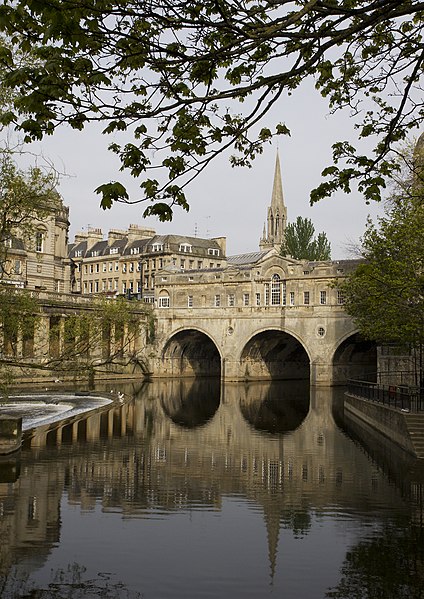My Particular Friend footnotes: The Bride Who Wasn’t There 3
Beginning with Mr Simms’s Destination:
 ‘No, he did not. He made some small purchases and also stopped for food and drink. Finally he went across Pulteney Bridge and came to a house on Argyle Street. Actually it was a small shop, a milliner’s, and he entered and remained. He must be in the rooms above the shop.’
‘No, he did not. He made some small purchases and also stopped for food and drink. Finally he went across Pulteney Bridge and came to a house on Argyle Street. Actually it was a small shop, a milliner’s, and he entered and remained. He must be in the rooms above the shop.’
Pulteney Bridge: a bridge that crosses the River Avon
Charlotte agreed and added, ‘And I must return to our library; I think I have an unfinished port and a treatise on the transit of Venus that I must finish. Good night, Mr Wallace. Perhaps Mrs Fitzhugh you shall remain here … to lend propriety?’
transit of Venus: Charlotte may have been reading of a transit of Venus observed in 1769 during the expedition of Captain James Cook
‘Are you a surgeon or a doctor?’ I asked, reluctant to ask and find that he was not a gentleman, which I had presumed. And then I realized it would make no difference to me, who as a lady’s companion could make no great claim to status.
surgeon: by the 1800s, the status of surgeons had improved from their beginnings as barber surgeons. In 1745, the surgeons broke away from the barbers to form a separate Company of Surgeons, and in 1800, the Company of Surgeons was granted a Royal Charter to become The Royal College of Surgeons in London. But surgeons were still not considered gentleman because they worked with their hands and were addressed as mister. In Sir Arthur Conan Doyle’s The Hound of the Baskervilles, the distinction is made in the following conversation:
“Come, come, we are not so far wrong after all,” said Holmes. “And now, Dr. James Mortimer—”
“Mister, sir, Mister—a humble M.R.C.S. [Member of the Royal College of Surgeons].”
Technically, of course, a doctor was not a gentleman because he accepted money for services. But presumably Mr. Wallace is the son of a gentleman.
